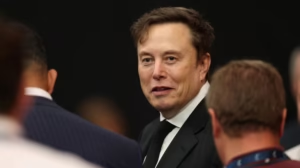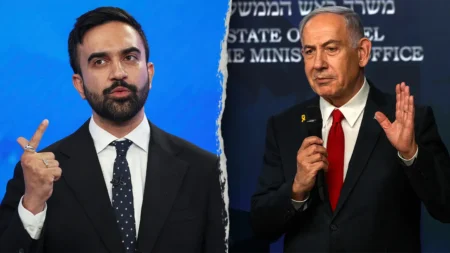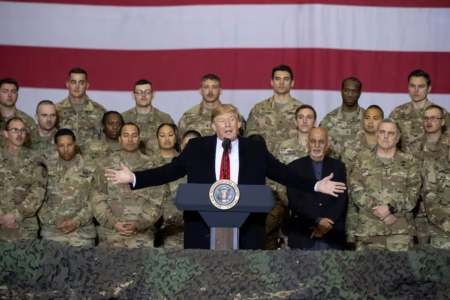The United States has warned that it may destroy the Russian economy if Moscow does not change its course in Ukraine. After failing to defeat Russia militarily through Ukraine, Washington is now focusing on economic pressure. U.S. Treasury Secretary Scott Bessent has called for joint action with Europe to target Russia’s financial stability.
Russia carried out its largest airstrike in Ukraine since the start of the war. On Saturday night, Vladimir Putin’s forces targeted the heart of the Ukrainian government. Cruise missiles struck the Cabinet of Ministers building in Kyiv, which houses offices of the Prime Minister, Deputy Prime Minister, and other senior officials. This rare attack hit a heavily defended area of the city, protected by advanced air defense systems.
The assault has angered U.S. President Donald Trump. On Sunday, Trump said he was ready to impose a second round of sanctions on Russia. He demanded stronger measures to pressure Moscow into negotiations. Treasury Secretary Bessent revealed that these steps could paralyze Russia’s economy.
Speaking to U.S. media, Bessent said a second wave of sanctions on Russian oil exports could severely weaken Moscow’s financial system. “The goal is to make Putin come to the negotiating table,” he said. The Treasury chief emphasized that the United States is prepared to take action but wants the European Union to join in.
Bessent described the situation as a race between Ukraine’s military endurance and Russia’s economic resilience. He noted that combined U.S. and European sanctions could completely collapse Russia’s economy if coordinated effectively.
The U.S. strategy is raising questions about global trade impacts. One concern is whether higher sanctions on Russia will increase tariffs on Indian imports. The United States has already imposed an extra 25% tariff on most goods purchased from Russia, including oil. This brings the total tariff on Russian products to 50%.
India is one of the world’s largest buyers of Russian oil, alongside China. Despite China also being a major importer, U.S. pressure is focusing primarily on India. Analysts suggest this may be an attempt to curb India’s reliance on Russian energy without affecting China.
The new sanctions plan marks a shift in U.S. policy. Until now, the focus had been on military support to Ukraine. Economic tools are now taking center stage as a way to influence Moscow’s decisions. Bessent stressed that working closely with Europe would maximize the sanctions’ effect.
U.S. officials believe that a coordinated approach can force Russia into meaningful discussions over the conflict in Ukraine. The Treasury Department is studying which sectors of the Russian economy are most vulnerable. Energy exports, banking, and key industrial supplies are expected to be the main targets.
This economic pressure comes after months of conflict in Ukraine, which has seen cities across the country under attack. Kyiv has endured multiple missile strikes, but attacks on government centers remain rare. The Saturday assault on the Cabinet building is considered unprecedented in recent years.
Experts say that crippling Russia’s economy would have global repercussions. Energy prices could rise, and trade relations may shift, especially for countries importing Russian oil and gas. India and China, as major consumers, may face new challenges under intensified sanctions.
While the military front remains tense, U.S. leaders believe that economic measures could provide a powerful tool to influence Putin. By targeting vital sectors of the Russian economy, Washington hopes to create leverage for negotiations.
Treasury Secretary Bessent’s call for European cooperation signals that the West wants a united response. Analysts suggest that the effectiveness of sanctions will depend on global alignment. If Europe and the U.S. act together, Russia could face severe financial disruption.
The coming weeks will likely determine how Russia responds to the new economic pressure. Ukraine’s ability to hold its ground and Russia’s economic resilience are now linked in a high-stakes competition. With the U.S. ready to act, the world watches closely to see whether sanctions can force change in Moscow’s approach.







